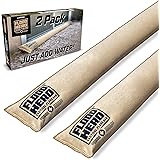Neglecting Basic Skills
Overlooking Practical Training
When I first jumped into prepping, I was all about the gear. I thought if I had the best survival knife or the latest camping gadget, I’d be set. But here’s the kicker: without hands-on skills, all those tools are just fancy paperweights. It’s crucial to prioritize practical training over merely accumulating stuff.
I remember my first foray into wilderness survival training. I struggled to start a fire without matches, which felt downright embarrassing. But guess what? That experience taught me more than any book ever could. I learned how crucial it is to practice skills like fire building, foraging, and navigation, rather than just reading about them.
So, my advice? Join local workshops or find online courses. You’ll not only learn but also build a community of like-minded folks you can rely on when the chips are down.
Ignoring First Aid
Another area I seriously underestimated was first aid. It’s one thing to watch an instructional video online, and quite another to actually know how to perform CPR or dress a wound in a real-life situation. I’ll always remember the day when my buddy cut himself while we were camping—panic set in because I had no clue how to handle it.
Getting certified in basic first aid took less time than I expected, and it’s made a world of difference in how I view prepping. It’s not just about surviving; it’s about being prepared for everyday accidents that can happen in the wilderness or at home.
Communicate with family or friends about first aid responses and practice those scenarios together. Trust me; you don’t want to be figuring this out on the fly when something goes wrong.
Not Practicing Regularly
If I’ve learned anything, it’s that practice makes perfect. Unfortunately, I found myself getting comfortable, just hanging out with my gear instead of regularly testing my skills and plans. Failing to practice can create a false sense of security.
I now set aside a weekend every month specifically for drills. Whether it’s a camping trip to test my survival skills or a mock emergency situation at home, staying sharp makes all the difference. It’s this regular practice that not only reinforces my skills but also keeps me mentally prepared for whatever comes my way.
== > What if ... Get a FREE Subscription to PREPARE
So set up your training schedules and stick to them! Trust me, you won’t regret that extra effort when things get tough. This diligence can even turn your skills into second nature!
Focusing Solely on Gear
The Gear Acquisition Syndrome
Man, I have been there! The constant urge to buy more gadgets can really drown out what’s essential in prepping. I thought that owning the latest high-tech gadgets was the key to survival—turns out it’s much deeper than that. What good is a shiny new toy if you don’t know how to use it?
I’ve had to take a step back and evaluate what I truly need versus what’s just shiny and appealing. Developing an inventory helps me stay on track and find a balance between what’s practical and what’s just a fleeting whim.
Instead of being blinded by deals, I started focusing on multipurpose items that serve several functions. For example, a good multitool can replace a dozen different tools; it’s about utility over luxury!
Underestimating Food and Water Storage
Alright, let’s talk about sustenance. I can’t even begin to tell you how many times I overlooked my food and water needs. It’s easy to get caught up in the excitement of other gear while forgetting the essentials—like food storage!
When I first began, I stocked up randomly, not thinking about expiration dates or nutritional value. It quickly turned into a scramble to replace expired goods. Now, I plan my food storage more strategically, focusing on a rotation system that ensures freshness and sustenance.
Water, too, is a big deal! Look into various storage options, from purification systems to large containers. I learned that it’s not just about having water but understanding how to purify it and when to rotate supplies. It’s the foundational stuff of prepping!
Failing to Plan for Communication
One mistake all new preppers should avoid is ignoring how vital communication is during emergencies. I can’t tell you how many hours I spent thinking about my gear while neglecting to set up reliable communication plans with my family and group members.
Get Preparedness and Self-Reliance Tips. Subscribe Now!
Start by discussing and establishing a communication plan with everyone involved in your group. Where will you meet if things go haywire? What’s the backup contact method? Establishing signals or codes for emergencies can save a ton of time and confusion when it matters most.
Having a reliable radio or walkie-talkies is essential too, especially in areas with weak cellphone service. Trust me; you want to be able to discuss plans and share vital information when the pressure is on.
Not Considering Community Planning
Ignoring Local Resources
One of the biggest eye-openers for me was realizing how much I overlooked the community around me when prepping. I thought prepping was solely an individual endeavor, but it’s not. Learning about local resources can be a game changer.
Start by connecting with local prepper groups, farmers, or community organizations. These connections can open doors to surplus food supplies, knowledge-sharing, and even barter opportunities that can help all of us prepare better.
At first, I was skeptical. Wouldn’t it be easier to just do my own thing? Absolutely not! The more I reached out, the more resources I uncovered. A simple conversation can often yield unexpected information that’s tremendously beneficial!
Building a Support Network
I can’t stress enough how vital a good support network is. Prepping can be damn overwhelming! Having people in your circle for motivation and help is invaluable. I have found partners who’ve made my prepping journeys smoother through encouragement and shared knowledge.
So, schedule prepping meetups, share what you’ve learned, and practice together. Building these relationships not only strengthens your skills but also enhances your morale in challenging times.
Plus, you’ll enjoy the camaraderie that comes with working towards a common goal. It feels good to be part of something bigger!
Failure to Escape the Bubble
Last but definitely not least, the mistake of thinking you have all the answers can be detrimental. It’s easy to get stuck in your ways; however, if you’re not open-minded about learning and adapting, you could miss out on crucial information.
Commit to continuously educating yourself. Dive into different prepping philosophies, explore alternative methods, and be willing to adapt your plans based on what you learn. You have to stay informed about local emergencies or changes within the community.
Even chatting with folks outside your usual circle can radically shift your perspective. Embrace diversity in thinking, and you’ll be better prepared across the board!
FAQ
What are some basic skills every prepper should learn?
Basic skills include first aid, fire-making, navigation, and self-defense. These skills will benefit you regardless of the scenario you face.
How can I find local prepping groups?
Check social media platforms, community bulletin boards, or even local libraries. Many groups gather to share knowledge and resources; it’s a great way to connect.
Is it necessary to have a bug-out location?
Absolutely! Having a predetermined safe location can be critical in emergencies. Make sure it’s easily accessible and well-stocked with supplies.
What should I focus on first in my prep journey?
Start with basic skills and knowledge, then gradually build your supply stockpiles. Prioritize readiness over possession!
How often should I practice my prepping skills?
Regular practice, ideally at least once a month, will build your confidence and improve your skills. Set a schedule and stick to it!






